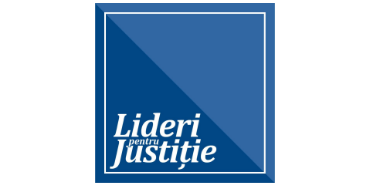Democracy is a regime in which there are many institutions, and few laws. —Gilles Deleuze
Last Thursday, while TI-Romania was launching its National Corruption Report, I participated in a conference debating the need for a new Constitution in Romania, organized by the Horia Rusu Foundation–a little nest of libertarian thinking, open to cross-partisan dialog. Still finding myself under the spell of Dr. Argyriades’s public trust theme from Thessaloniki, I followed the speeches and presentations last week, thinking of my earlier metaphor on birth certificates and real IDs. And I thought of revising my position a little bit, in the sense that a Constitution, in order to serve as a building block for the effective regulation of social, political and economic relations, ought to be a proper reflection of the way citizens and institutions relate to each other, understand each other, identify with each other…
Very little of the discussions last Thursday actually supported a radical change in the Romanian constitutional system. Rather, most speakers focused on text deficiencies in need of clarification. [And most of them anchored their arguments in very recent developments that I have also reflected on this blog.] One major concern related to our lack of consideration to balancing out independence with accountability. Essentially, speakers argued that lack of accountability and/or expertise thwarts the legitimacy of independent bodies within our three branches of Government. Thus, several opinions brought back the lively debates over separation of powers, separation of church and state, rights vs. responsibilities, right and might, the shaky interpretation and/or attitude of prosecutors, magistrates, parliamentarians, constitutional justices, etc.
Former President Constantinescu blamed civil society for the shortcomings of the current situation, outlining the stark contrast of the civic activists’ situation during the communist regime and after–then, they were just a few, and had no tools, but still achieved radical change; now, they’re quite a lot, have all the tools at their disposal, but achieve nothing! I took it rather badly, I was shocked, and I felt wronged… But then I thought he may have been right, in the sense that he criticized civil society for the same reasons I criticize political parties–lack of credibility among the people at large, and lack of permeability to new ideas and new people within their leadership structures. Suddenly, I remembered the late Mr. Rusu [deceased 2001] speaking in 1993 about a non-pyramidal, non-centralized party structure, that would allow for the quick readjustment of political elites in front of emerging or fading trends, ideas, needs and policies… But his idea withered away, since it required identity between some citizens’ aspirations and some institution in the new-born democratic Romania 🙁
By the end of the day, I realized what was missing from the debate–in fact, what failed to meet my expectations: There was no libertarian analysis of the problems springing from the current text of the Romanian Constitution, and/or of the possible solutions that libertarian thinkers would like to see promoted. The organizers had prepared a document that tried to focus the participants’ attention to
a) Republic vs. Monarchy,
b) differentiated vs. equal powers in a bicameral Parliament,
c) the role of Justice within separation of powers,
d) reshaping the Constitutional Court, and
e) projecting the future of Romania in Europe.
But that document, those topics, were not clearly libertarian, nor, at least, analyzed from various philosophical/ideological perspectives 🙁 And neither were all speakers anchoring their arguments in classical doctrines, although all major schools of thought were “represented” in the room… [Some music to my ears, although from a completely different perspective, was Prof. Popescu‘s idea that the Parliament’s legislative attributions might be limited, while the rest could be delegated to the Executive and/or the Courts.]
So I called on the participants to reflect on the merits of fundamenting their views on classical doctrines, make an analysis of the problems, and then identify which of them would be of common concern to all thinkers… Once a set of fundamental problems would be identified, from all perspectives, we would finally be in position to say, here, these are the things that prevent the Romanian constitutional system from working properly! Then, debating on the appropriateness and applicability of doctrinal solutions, trying to reach consensus among thinkers, rather than calling a vote among politicians, one major institution would finally make its way into Romanian democracy–dialog. With that in mind, with responsibility and expertise conjoined with independence and impartiality, I could finally place my faith in the new Romanian Constitution to become the building block of integrity and public trust in this country 🙂 Wish us all good luck!






